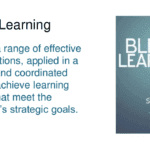Authentic power at work

POWER.
A lot of us have uneasy relationships with the concept of “power”, often because we have seen the destruction that can be wrought in the name of power. And some of us have even been directly harmed by someone’s abuse of power.
Our workplaces are ripe with all kinds of power. People can have workplace power based on the roles they hold such as their position or job title (e.g., CEO), and/or their ability to give rewards (like raises) or punishments (like speeding tickets 0r demotions).
People can also have power because of personal qualities such as expertise they hold (think lawyers and IT professionals) or their personality. This type of power, called referent power, stems from the fact that people genuinely like the person and want to please him or her.
You can have more than one type of workplace power and it’s important to know which type of power you hold as well as that held by the people around you. But workplace power is very different from your personal power—your authentic power.
Your authentic power transcends position, job, and even situation. Your ability to speak up for yourself or others comes from authentic power as does the courage to be vulnerable and take risks. It is also the source of your strength, confidence, self reliance, ability to set boundaries, and resilience.
Authentic power comes from being grounded in a deep knowing that you are enough. That you are part of something bigger than yourself. Some call this wisdom.
The truth is that we all have authentic power, simply because we exist. But not all of us tap into it or use it consciously.
But we can learn! Mindfulness practices, like meditation and yoga teach practical skills for tapping in to the universal energy that flows through all things. And while some consider this "woowoo", study after study has shown the real and powerful benefits that mindfulness practices bring. The brain changes, increasing creativity and innovation. The central nervous system becomes calm, and both our emotional intelligence and our intuition increase.
Needless to say, this leads to all kinds of positive outcomes that drive success at work and in life. In fact, more and more successful leaders are confessing to being long-time meditators and hailing the power of mindfulness.
Many of them are shifting the culture of their workplaces by bringing mindfulness practices in house. Places like Google, Facebook, LinkedIn, Eileen Fisher, and Starbucks, all of whom are speaking at the upcoming Wisdom 2.0 conference.
Our workplaces are often built on positional power—the hierarchy of who has authority over others. And sadly, some people misuse position power. This can take all kinds of forms from using blame and shame to make others feel small, to being verbally and physically abusive, to bullying or harassing others.
In my years of consulting and coaching, I have found that the people who misuse position power are actually lacking in authentic, personal power. Because they are not connected to something bigger than themselves, they fill that void by attempting to overpower others.
This is why introducing mindfulness practices to work environments can shift the culture. As people become more grounded in their authentic power, they don't need to engage in power-mongering behaviors that are so harmful to the health of any organization.
If you want to bring out the potential of your people and your organization, you have to help people develop their authentic power and wisdom. While we cannot mandate that, we can certainly provide them with the tools to get there.
Consider offering on-site yoga and meditation classes or offer to pay for them. Make sure your health benefits cover therapy and coaching, so that people can do their personal healing work.
And every one of us can make a difference by role modeling authentic power. As you do so, you will not only feel stronger and more resilient, you will give others permission to do the same.
If you are new to mindfulness, start small. I personally love the 21-day meditation series offered by The Chopra Center. Each one includes a teaching point and then 10-minutes of guided meditation (20 mins total). I download mine to my smartphone so I can listen anywhere.
And even one yoga class per week can shift your abilities to tolerate ambiguity, manage stress, and live from authentic power. And that's separate from the health benefits of strength and flexibility.
So let's bring authentic power to work. As we do so, we will change the world, one workplace at a time.
Related Blogs
JOIN OUR COMMUNITY
Be the first to know of Dr. Britt Andreatta's latest news and research.





